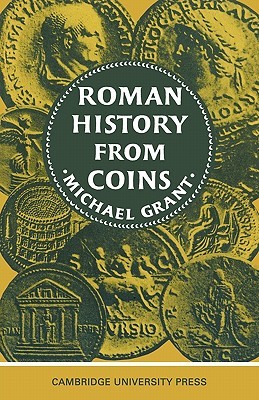
- We will send in 10–14 business days.
- Author: Michael Grant
- Publisher: Cambridge University Press
- ISBN-10: 0521095492
- ISBN-13: 9780521095495
- Format: 12.9 x 19.8 x 0.7 cm, minkšti viršeliai
- Language: English
- SAVE -10% with code: EXTRA
Reviews
Description
In this 1968 study, Michael Grant examines the varied ways in which Rome used currency to inform direct or deceive public opinion and also considers results of this exploitation. Cunning historians can read in the coins matters of art politics, religion, economics - even personalities not to be found in surviving books: or if found, can set what the books say against what the coins say. Professor Grant astutely masters his difficult and complex subject matter, producing a brief exposition of it in words which the general reader and specialist alike can understand and profit from. Complemented by a series of half-tone plates, Professor Grant's book is an excellent introduction for students of history to the value of coins as evidence for their subject.
EXTRA 10 % discount with code: EXTRA
The promotion ends in 23d.22:27:03
The discount code is valid when purchasing from 10 €. Discounts do not stack.
- Author: Michael Grant
- Publisher: Cambridge University Press
- ISBN-10: 0521095492
- ISBN-13: 9780521095495
- Format: 12.9 x 19.8 x 0.7 cm, minkšti viršeliai
- Language: English English
In this 1968 study, Michael Grant examines the varied ways in which Rome used currency to inform direct or deceive public opinion and also considers results of this exploitation. Cunning historians can read in the coins matters of art politics, religion, economics - even personalities not to be found in surviving books: or if found, can set what the books say against what the coins say. Professor Grant astutely masters his difficult and complex subject matter, producing a brief exposition of it in words which the general reader and specialist alike can understand and profit from. Complemented by a series of half-tone plates, Professor Grant's book is an excellent introduction for students of history to the value of coins as evidence for their subject.


Reviews